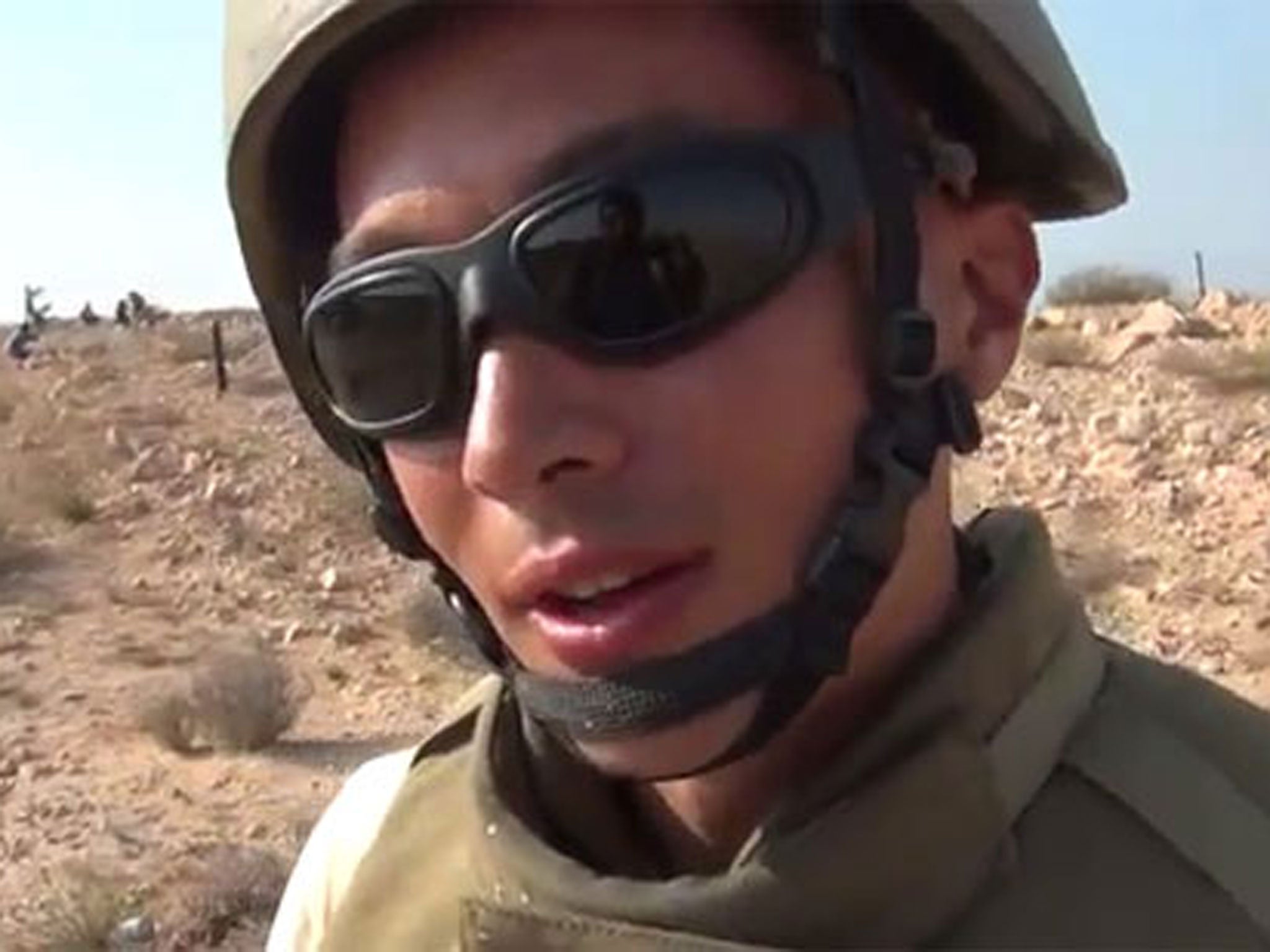The sad truth is that Kevin Dawes put himself in danger. His capture in Syria was no surprise
The internet makes war reporting look easy. It encourages adventurers, some with psychological problems, and there's no safety net to protect them


Kevin Dawes was coming out of a fast-food cafe in Misrata with a takeaway when I bumped into him. He was full of excitement over the future of Libya and the part he would play in it. The problem, he mused, was choosing between his various expertise as a combat medic, a sniper or a journalist.
This was in October 2011. I had just left a warehouse where the bodies of Muammar Gaddafi and his son, Mutassim, both tortured and killed after being captured by rebels, were on display for the public with a long queue, including families with children, patiently waiting to view the bodies.
The sudden appearance of Dawes, however, was startling and also somewhat alarming even at a time of such turbulence. The young Korean-American had left Misrata in something of a hurry just a few months previously after being accused by rebel fighters of being a spy. The accusation of spying was wrong. But it had been fuelled by the fact that many of Dawes’ claims – from being able to carry out emergency surgery to being a marksman and also a seasoned photojournalist – had come into doubt from members of the media and opposition fighters, after he had attempted to perform these skills in the field.
Dawes is in the news now because he has just been freed by Bashar al-Assad’s regime in Damascus. The 33-year-old from California has been missing for four years after going into Syria from Turkey. The release came following an appeal, it is said, from Barack Obama to Vladimir Putin. The Kremlin had interceded with its Syrian allies; Dawes had been flown to Moscow in a Russian military aircraft and handed over to American officials.
Around 30 journalists remain missing in the chaos of Syria’s bloody civil war, among them at least six foreigners, Austin Tice, an American freelance journalist and a former US Marine, who is believed to be held by the regime or one of its’ allied militias, and John Cantlie, the British freelance photojournalist who is a captive of Isis, as, it is thought, are a Japanese and three Spaniards.
Tice, too, has been missing for around four years. An opposition activist who helped me to get to Syria in 2012 to cover the battle for Aleppo had also organised Tice’s crossing of the border. The 31-year-old Tice wanted to be the first Western journalist to go into Damascus with rebel forces and had headed that way, keeping in touch with the activist and urging him to help to get him towards the Syrian capital. The activist urged caution, telling Tice that he would be in added danger if captured as a former member of the US military.
Dawes had asked the same activist in the Turkish border town of Antakya to help him; but the activist refused because, he said, he thought Dawes would turn out to be a problem. Tice disappeared. A video of him appeared soon afterwards, blindfolded, supposedly the captive of Islamists, but there were questions about the veracity of the footage, it appeared to have been planted by the regime or its supporters. Then came the news that Dawes was also in Syria.
There was little surprise at the news that he had gone missing, and foreboding that he may talk himself into greater trouble than he was in already. Dawes, too, wanted to be famous as a journalist. The author James Harkin, who had written extensively about Syria, found a posting that appeared to be by him on a website, called somethingawful.com, saying: “Guess where I’m going to be on the 16th! It’s Misrata, Libya. Say it with me people, Pulitzer motherf****** prize.”
Dawes also revealed, in another posting, how he embarked on acquiring medical knowledge, showing a photo of himself with a medical drip on his arm. “I learned how to do this by ordering medical supplies online and watching self-IV tutorial on YouTube. The Internet rocks!" he declared. In Turkish border towns he allegedly told some people that he was a qualified doctor who was on a mission to help the sick and the injured in Syria.
Dawes, it is being suggested, was suffering from severe delusions, convinced that his grandmother was a CIA agent; that the CIA had sterilised him but, at the same time, wanted to use him in a specialist CIA stud-farm. He had been brainwashed, he had come to believe, with implanted computer chips. He had gone to the Russian embassy in Washington with these revelations. But, according to his internet post they “told me to f*** off at the gate.”
The internet may make a lot of things look easy - combat surgery, war reporting. This encourages adventurers and among them are some with psychological problems. As the case of Dawes seems to show, there is little by way of a safety net to keep these people from getting in harm’s way.
At another level, what has happened illustrated how Washington has to turn to the Kremlin for help in Syria. The Russians are keen to play this up; foreign ministry spokeswoman Maria Zakharova said: “Some time ago, President Barack Obama spoke to President Vladimir Putin with a personal request for assistance in the search for US citizens who could be in Syrian territory. As a result of its work it was found that one of them – Kevin Dawes – was being held under arrest for illegal entry into the country and other offences. In response to our appeal, the Syrian authorities have found it possible to show clemency and release the American on humanitarian grounds.”
The Russian foreign ministry added that it hoped Dawes “doesn’t put himself in a similar situation again”.



Join our commenting forum
Join thought-provoking conversations, follow other Independent readers and see their replies